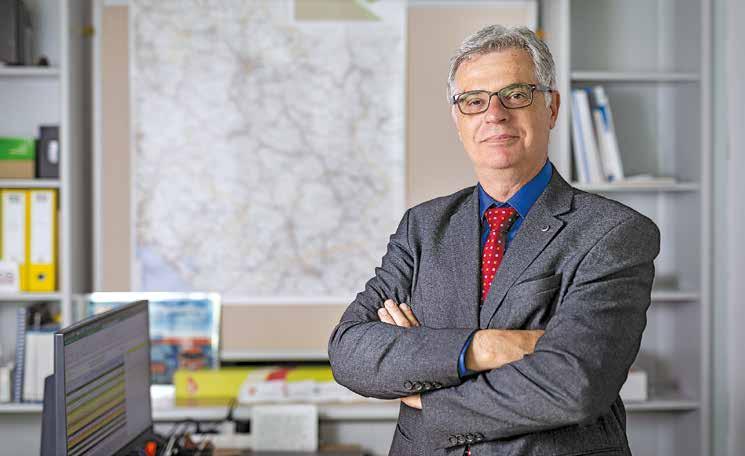
2 minute read
Change Is Tough, But Remaining The Same Is Devastating
from Green Serbia 2023
Global economic transformation is crucial to combat climate change and biodiversity loss. However, governments and businesses tend to prioritise everyday concerns and engage in greenwashing, which is insufficient and damaging. Examples are all around us
The implementation of the European Green Deal in both the EU and the Western Balkans is not only complex, but also challenging. Profound and nuanced views on the pressing issues of our time are provided in the opening interview of this edition, with European Environment, Oceans and Fisheries Commissioner Virginijus Sinkevičius, but also in subsequent interviews. These issues include identifying ways to address climate change, biodiversity loss and pollution amidst fragile growth, unstable market conditions, disrupted global supply chains and conflicts in the region.
Advertisement
It is clear that the fundamental transformation of our global economic model is necessary to address these challenges. However, governments and businesses that are focused on everyday issues, like rising inflation, energy shortages and GDP decline, tend to procrastinate on decisive decisions or engage in greenwashing. This is insufficient to address the existential threat posed by climate change, which is closely linked to biodiversity loss and environmental protection.
Despite the alarming rate of species loss, deforestation, soil damage and ocean warming, global agreements on laws that protect the natural environment are yet to be fully addressed. Commissioner Sinkevičius emphasises how increasingly difficult it will be to sustain our lifestyles and livelihoods without agreement being reached as soon as possible on policies that protect the environment.
G overnments may sign agreements and pledge to protect the environment, but may end up doing the opposite in reality
Even with everything in place, navigating the required changes, such as replacing fossil fuels in production, logistics or households, will remain tremendously complex. Our interviews with Tomislav Mićović, of the National Petroleum Committee of Serbia (NNKS), and Aleksandar Macura, co-founder and programme director of the RES Foundation, shed light on the multifaceted nature of this process.
While governments are keen to sign agreements on climate change and pledge to protect the environment, in reality they may end up doing the opposite. Dragana Đorđević, from the Institute of Chemistry, Technology and Metallurgy at the University of Belgrade, turns the spotlight on Serbia’s natural wealth and numerous examples of its irreversible destruction. Our conversation with her raises the critical question of whether Serbia should invest in mining operations to underpin growth or refrain from doing so in order to protect nature.
In conclusion, Mićović’s assertion - that “if every percentage of economic growth implies at least the same percentage of growth in the use of natural resources, then there are no existing sources of energy and mineral resources that won’t have negative consequences for life on Earth. That’s why striving for rational, sustainable growth is the most important factor” - emphasises the need to fundamentally transform our global economic model.










